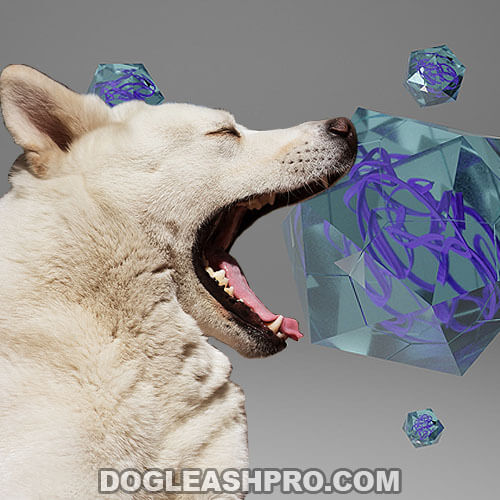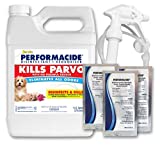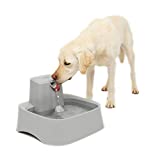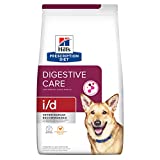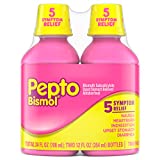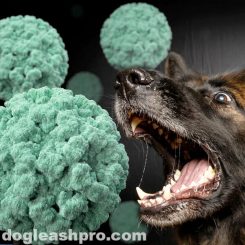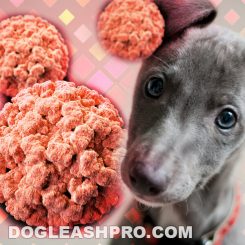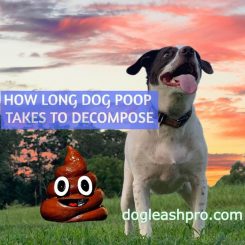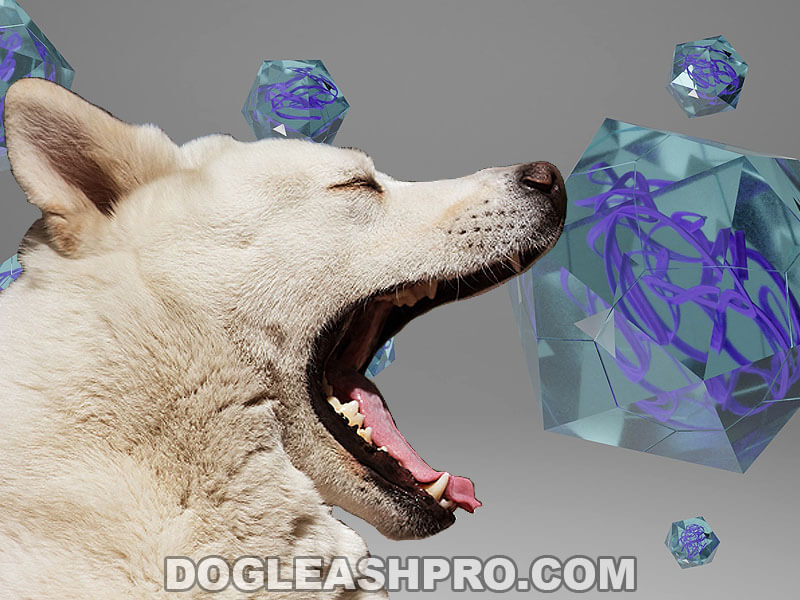
Can A Dog Get Parvo Twice? Parvo reinfection in dogs isn’t very common. However, canines get Parvovirus twice if they have a weak immune system. Another reason dogs can get reinfected is that Parvo has multiple strains. So, if your pet falls ill due to one strain, he remains susceptible to the others.
Has your doggo recently recovered from Parvovirus? Most dog parents with canines on the mend from Parvo may wonder, “If a dog survived Parvo, can they get it again?” If you’re concerned about the same, this article can help.
This comprehensive guide will focus on everything related to Parvo, from symptoms to reinfection. If you’re on a budget, be sure to check out How To Cure Parvo Without A Vet For Your Dogs after reading this guide.
Table of Contents
Can Dogs Get Parvo Twice?
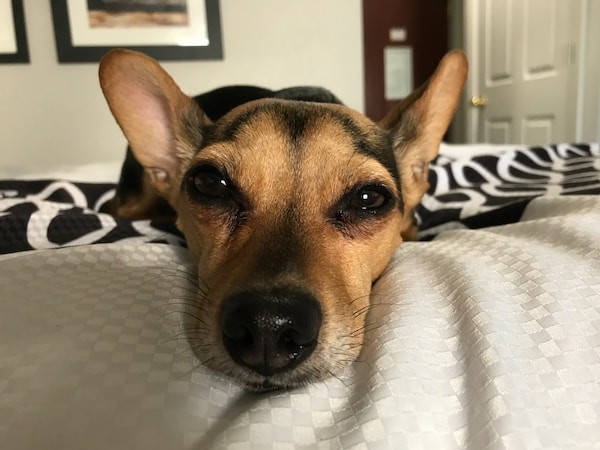
Yes, dogs can get Parvo twice, but it’s not common. Reinfections occur due to contractions of different strains or a weakened immune system.
If your canine contracts Parvo once, he may still be vulnerable to other strains. On the other hand, if your pup suffers from an underlying condition, it can overburden the immune system and result in a relapse.
RECOMMENDED: How Do I Know If My Puppy Will Survive Parvo?
What is Parvo in Dogs?
Parvo, short for Canine Parvovirus, is a highly contagious viral disease that affects dogs. It is most common in pups and young dogs, as their immune systems are not fully developed.
The virus affects the lining of the small intestines, causing severe diarrhea, vomiting, and dehydration.
Parvo is transmitted through direct or indirect contact with infected feces.
Pups can contract the virus by interacting with contaminated surfaces, like food bowls or bedding.
It can also be spread by humans who have come into contact with an infected canine because the virus can survive on clothing and shoes.
Symptoms of Parvo can vary from mild to severe and may include lethargy, loss of appetite, fever, and abdominal pain. The virus can cause dehydration, shock, and even death in extreme cases.
READ ALSO: How to Get Your Dog to Eat When Sick
Treatment for Parvo typically involves hospitalization, where the dog will receive supportive care such as fluids and medication to control vomiting and diarrhea.
The good news is that with prompt and proper treatment, many dogs can recover from Parvo.
How many times Can a Dog Get Parvo?
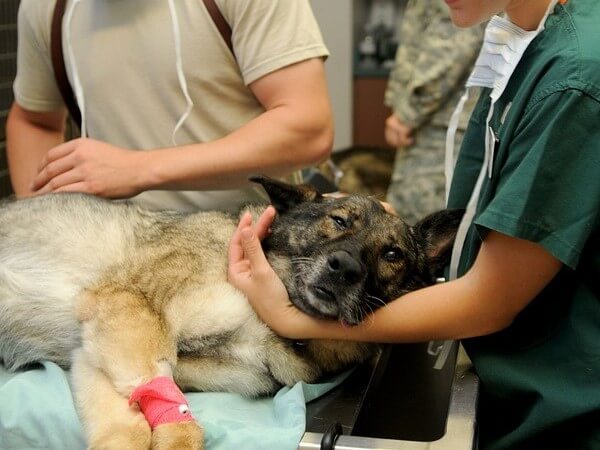
Once a dog recovers from Parvo, it generally develops immunity against the virus, making it unlikely to get infected again.
Still, you should note that the immunity provided by the initial infection or vaccination doesn’t last forever.
That’s why dogs can get reinfected if they come into contact with a new strain or have weak immunity. Chances of reinfection are rare, but experts recommend keeping up with your K9 friend’s vaccination schedule to avoid trouble.
How many times should a Dog Get Parvo?
Ideally, the Parvovirus should be avoided altogether. Pups need three Parvo vaccinations from 8 to 16 weeks of age, whereas adults get a Parvo shot once every three years.
These vaccinations can help keep your pet from ever suffering from the disease.
What breeds are more susceptible to Parvo?
Some canine breeds are more susceptible to Parvo than others. The breeds at higher risk of getting infected with Parvo include Rottweilers, Pit Bulls, Doberman Pinschers, German Shepherds, and Labrador Retrievers.
It’s unclear why these breeds are more vulnerable to Parvovirus. However, unneutered males are at greater risk than their female counterparts.
How old Can a Dog Get Parvo?
Dogs of all ages can get Parvo, but puppies are at the greatest risk. Pups under six months are the most susceptible to getting infected with Parvovirus. And the younger the puppy, the more severe the symptoms can be.
However, adult dogs can also get infected, especially if they are not up-to-date on their vaccinations or have compromised immune systems due to underlying health issues.
How Can Dogs catch Parvo?
Dogs can contract the Parvovirus by coming into contact with infected feces or surfaces. For example, if you touch an infected dog, the germs on your hands can infect your pup. Contaminated bedding or food and water bowls can also spread the virus.
If you’re concerned about your bedding, furniture, or other surfaces being infected with Parvo, you’ll want to use a Parvo disinfectant. The Performacide Kills Parvo Disinfectant is safe to use on linoleum, tile, concrete, and any other non-porous surfaces.
What causes Parvo In Dogs?
Dogs can get Parvovirus for multiple reasons. Scroll below to discover all the possible causes of this canine disease.
1. Contact with infected feces
If a canine comes into contact with an infected dog’s feces (poop), it can easily be infected.
2. Contact with infected surfaces
Another standard method of transmission is contact with infected surfaces like flooring, bedding, food, or water bowls.
3. Direct contact with an infected dog
Staying close to an infected dog is enough to pass on the virus.
4. Weakened immune system
A weak immune system can result in Parvo because the canine’s body can’t fight off the infection.
5. Lack of vaccination
The lack of antibodies (through vaccinations) against the virus is one of the main reasons Parvo is prevalent in dogs.
6. Age
Pups and young dogs with undeveloped immune systems are at greater risk of contracting Parvo.
So, can Parvo be prevented?
Pet owners can take certain steps to prevent their dogs from contracting the disease. The easiest way to avoid Parvo is to ensure that your doggo is up-to-date on all of its vaccinations.
Vets recommend that puppies receive their first Parvo vaccination at 6-8 weeks of age and booster shots every three to four weeks till they are four months old.
Additionally, owners should avoid exposing their dogs to other pets that may be infected with the virus and practice good hygiene by washing their hands and cleaning any surfaces that may be contaminated. Taking these measures can reduce the risk of your dog contracting Parvo.
What is the first signs of Parvo In A Dog?
Signs Of Parvo In Dogs can be tricky initially. That’s because the first signs of Parvo in a dog include fever, lethargy, and inappetence.
Since these symptoms also show up in health concerns like a tummy upset, they can be misleading.
What’s more, keeping track of parvo symptoms day by day might not be easy for first-timers because they can shift as the disease continues.
As the virus progresses, your fur baby can experience vomiting and diarrhea. This can lead to canines becoming dehydrated quickly.
DON’T MISS: How Long Can A Dog Go Without Water?
It is vital to seek medical care as soon as possible if you think your pup has Parvo, as early treatment can greatly increase its chance of survival.
Can a Dog carry Parvo and not be sick?
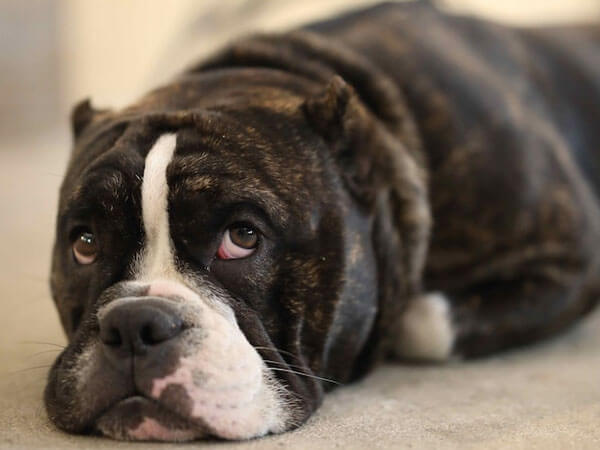
Can a dog carry Parvo and not be sick? Yes, that’s possible. Some adult dogs can carry and spread the Parvovirus without showing any symptoms.
These asymptomatic carriers are dangerous because they can infect other dogs that are not vaccinated or have weak immune systems.
The virus can survive without carriers in the environment for a long time, making it easy for dogs to pick up the infection. That’s why it is crucial to vaccinate your dog against Parvovirus and keep their environment clean and sanitized.
What does a Dog’s poop look like with Parvo?
Believe it or not, the term “Dog Parvo poop” is highly researched on the internet. One of the most common symptoms of Parvo is diarrhea, and the poop of an infected dog can be a useful indicator of the disease.
A dog’s poop with Parvo is usually watery, foul-smelling, and may contain blood or mucus. The color of the poop can range from yellow to dark brown, and it may also appear frothy.
READ NEXT: My Dog Has Diarrhea But Is Acting Fine
Can Dogs Get Parvo from Chicken poop?
Dogs can get Parvo from chicken poop if the poop is contaminated with the virus. Parvo is highly contagious and is spread through direct or indirect contact with infected feces.
Chickens can carry the Parvovirus, and their feces can remain infectious for several weeks. If your pet comes into contact with contaminated chicken poop, it may become infected.
Can Dogs Get Parvo from Rabbit poop?
Dogs are unlikely to contract Parvo from rabbit poop because most pathogens in rabbit poop are species-specific. That means your fur baby can’t fall sick from rabbit poop.
Nevertheless, it is still important to promote hygiene and keep your canine away from places where it might come into contact with rabbit feces or other animal droppings for health and safety reasons.
Can Dogs Get Parvo from wild animals?
Yes, dogs can get Parvo from wild animals. Species such as raccoons, foxes, and coyotes can carry the virus and spread it to domestic dogs. It is necessary to keep your dog away from wild animals and their feces to prevent the spread of Parvo.
Can Dogs Get Parvo from lake water?
Dogs can contract Parvo from contaminated water sources like lakes or streams. The risk of canines contracting Parvo from water bodies is higher when pups are unvaccinated.
The virus can last in water for a short period of time, but it’s best not to take any risks with your fur baby’s well-being.
If your furry friends love the sound of water flowing, invest in a water fountain instead. This way, they’re able to stay hydrated while enjoying the sound of water moving.
Can a Dog Get Parvo from a cat?
While cats can also contract Parvovirus, they cannot transmit it to dogs. That’s mainly because felines and canines have their own species-specific virus strains. Therefore, dogs cannot get Parvo from a cat.
Can a Dog be a carrier of Parvo?
Yes, adult dogs can be carriers of the Parvovirus without any outward symptoms. Experts recommend keeping your pup away from other animals until their Parvo vaccinations are complete at four months of age.
Can humans transfer Parvo to Dogs?
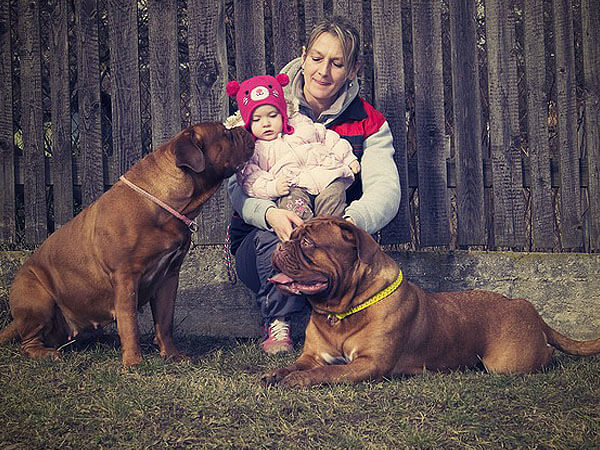
While humans aren’t carriers of the Parvovirus, they can transfer the disease if they come into contact with an infected canine. The pathogens of this virus can survive for some time on surfaces like clothes and shoes.
You can even pass on the virus to your pet if you touch your doggo with unwashed hands after touching an infected dog.
Can Dog Parvo affect cats?
Dog Parvo doesn’t affect felines because cats and dogs have species-specific virus strains. In short, there’s no cross-species transmission of Parvo between cats and dogs.
How long should a Dog with Parvo be isolated?
Dogs with Parvo should be isolated for at least two weeks from the onset of symptoms. The virus can remain in the canine’s feces for up to two weeks after the initial infection.
During this period, your furry friend should be kept away from other pups to prevent the spread of the virus. The isolation period can be extended if your pet is still shedding the virus or has not fully recovered.
Can Parvo be treated?
While there is no cure for Parvo, it can be treated through a combination of supportive care and medical treatment. Treatment typically involves hospitalization, where the dog is given intravenous fluids, antibiotics, and other medications to manage symptoms such as vomiting and diarrhea.
In severe cases, a vet can recommend plasma transfusions. Early detection and treatment are crucial in improving a dog’s chances of survival.
Is there treatment for Parvo In Dogs?
Canine parvovirus (CPV) attacks the gastrointestinal tract and can cause severe vomiting, diarrhea, and dehydration. If your dog is diagnosed with Parvo, several treatment options are available.
1. Hospitalization
The most common treatment for Parvo is hospitalization. This is because infected dogs are often weakened and need supportive care. During hospitalization, your dog will receive intravenous fluids to treat dehydration and electrolyte imbalances. They may also receive medication to control vomiting and diarrhea.
2. Antibiotics
Dogs with Parvo are at risk of developing secondary bacterial infections. Your vet may give your fur baby antibiotics to prevent these infections.
3. Nutritional Support
Infected canines often lose their appetite and become malnourished. Nutritional support is essential for their recovery.
Your veterinarian may recommend a special diet such as the Hill’s Prescription Diet i/d Digestive Care Chicken Flavor Dry Dog Food or liquid nutrition to help your pet regain its strength.
4. Plasma Transfusions
In severe cases of Parvo, dogs may require a plasma transfusion. The virus can damage the bone marrow, decreasing the number of white blood cells. A transfusion can help restore the dog’s blood proteins and improve its health.
5. Home Care
Once your furry family member is discharged from the hospital, you may need to continue treatment at home.
This may include giving medication, a special diet, and monitoring your dog’s hydration levels.
Following your veterinarian’s instructions carefully is vital to ensure your dog recovers fully.
You’ll also want to make sure your home is disinfected. Using the Performacide Kills Parvo Disinfectant can help!
Parvo treatment cost for Dogs
If your search history contains the term ‘Parvo Dog treatment cost,’ you might want to pay attention here. We’ve created a table for you to review Parvo’s individual and overall treatment costs to help you understand how treatment might affect your budget.
It’s important to note that treatment costs might vary depending on your vet and the severity of the disease.
For example, a dog Parvo shot cost will not cost as much nutritional support, plasma transfusions, and IV hydration combined.
| Treatment type | Price |
| Blood work | $130 |
| Hospitalization, IV hydration, and medication for diarrhea and vomiting | $855 |
| Antibiotics | $35 |
| Nutritional Support | $300 |
| Plasma Transfusion | $300 (per unit) |
| Home Care | $350 |
| Total cost | $1,970 |
Why does my Dog Keep Getting Parvo?
Parvovirus can survive for a long time in the environment, making it easy for dogs to get infected. The main reason some canines keep getting Parvo is that they are not completely vaccinated against it.
Puppies under four months of age are particularly vulnerable to the disease because their immune systems are still developing. Dogs with weakened immune systems, such as those with other illnesses or malnutrition, are also at higher risk.
Proper vaccination and hygiene practices, such as regular cleaning of your dog’s living area, can help prevent the spread of Parvo and keep your pet healthy.
My Dog has Parvo and I Can’t afford a vet! What should I do?
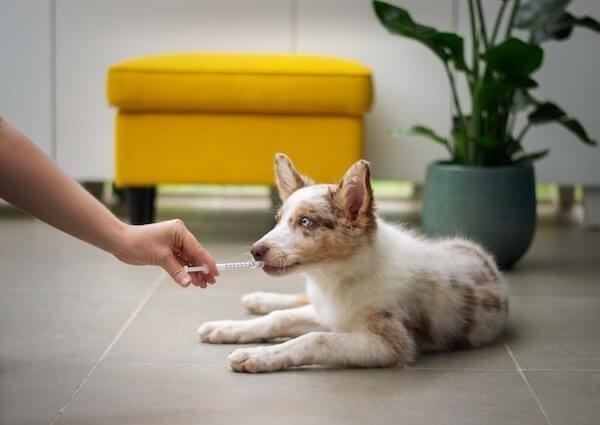
Parvovirus is a potentially fatal illness, and immediate veterinary care is crucial. If you cannot afford a vet, some options are still available. Research low-cost veterinary clinics in your area or contact animal welfare organizations to inquire about financial assistance programs.
Another option is to refer to our ‘How To Cure Parvo Without A Vet For Your Dogs’ article. While veterinary care is the best option, if nothing else works out, you can try helping your fur baby at home with the pointers mentioned in the guide.
Can you give the following to dogs with Parvo…
Pepto Bismol for Dogs with Parvo
Pepto Bismol is a medication commonly used to treat symptoms of gastrointestinal distress, such as diarrhea, in humans and dogs.
However, Pepto Bismol can also help canines with Parvo by keeping the stomach lining and intestines coated.
This, in turn, keeps the intestines from bleeding due to inflammation. You can give your pup half a teaspoon of Pepto once every hour to keep its tummy settled.
Tamiflu for Dogs with Parvo
Tamiflu or oseltamivir is administered to canines with a positive fecal Parvo test. The medication can help increase white blood cells and weight gain in pups.
The recommended dose for Tamiflu is 1mg/lb, once every 12 hours, for a total of ten treatments (consecutive). Experts recommend starting the medication within 48 hours of the first symptoms for best results.
IV Fluids for Parvo
Dogs with Parvo are treated with standard intravenous fluids such as normal saline and lactated Ringer (Isotonic crystalloids).
The fluid therapy requires a subcutaneous dose of isotonic sodium chloride every eight hours at 40ml/kg.
When do Dogs Get Parvo vaccine?
The first Parvo vaccine is usually given when the puppy is between six and eight weeks old. Boosters are given every three to four weeks until the puppy is 16-20 weeks old. After that, adult dogs should receive a parvo vaccine booster every three years.
However, the exact vaccination schedule may vary depending on the dog’s age, health, and risk of exposure to the virus. It is best to consult your vet to determine the appropriate vaccination schedule for your dog.
Some Dog Parvo vaccine side effects include lethargy, mild sneezing, and bumps at the injection site.
How often does a Dog need Parvo vaccine?
Puppies over six weeks old require a Parvo vaccine every three to four weeks until they’re four to five months of age. Adult canines require Parvo vaccinations (boosters) once every three years.
How many Parvo shots does a Dog Get?
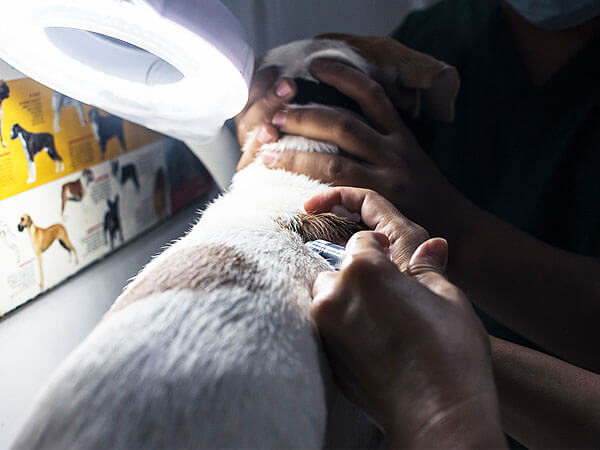
Puppies receive a total of four Parvo shots to become immune to the virus. However, adult K9s need a booster once every three years to maintain their immunity.
How long after last Parvo shot Can Dog go outside?
Pet parents must wait at least two weeks after the fourth and last vaccination dose to take their puppy outside without worrying about contracting Parvo.
Is there a new strain of Parvo in Dogs?
CPV-2c is the latest variant or strain of the Canine Parvovirus type 2. As with other variants, the CPV-2c is genetically related to the Parvovirus and causes similar symptoms.
Clinical signs of the new strain include inappetence, vomiting, diarrhea (bloody or yellow), and dehydration.
RELATED: Dog Vomit Color Guide
Can Dogs recover from Parvo?
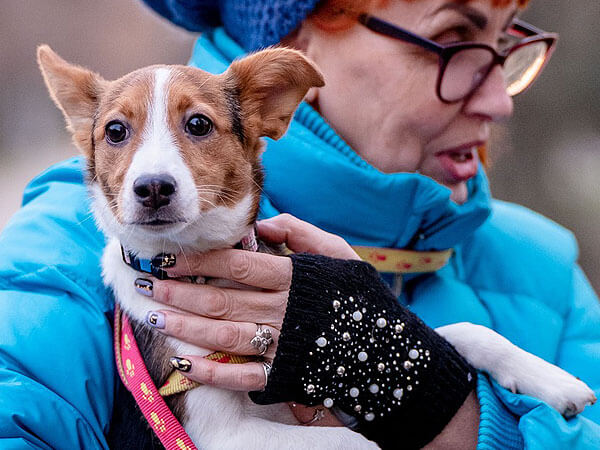
Although Parvo can be a serious and life-threatening illness, many dogs recover with proper treatment and care.
Treatment typically involves hospitalization, IV fluids, medication to control vomiting and diarrhea, and sometimes blood transfusions.
It is crucial to get medical assistance immediately if you think your dog has Parvo, as early treatment can improve their chances of recovery.
Parvo recovery timeline
The Parvo day by day recovery timeline can stretch anywhere between five to 10 days.
However, if your pet picks up a secondary infection due to weakened immunity, this may add to the overall recovery time.
Long term effects of Parvo in dogs
Parvo can have long-term effects on your doggo’s health even after successful treatment. One of the long term effects of Parvo is damage to the dog’s digestive system.
The virus affects the lining of the intestines, leading to malabsorption of nutrients and chronic diarrhea.
This condition, Parvoviral Enteritis, can lead to weight loss, dehydration, and malnutrition. The K9 may require long-term management to control the symptoms in severe cases.
Another long-term effect of Parvo is damage to the dog’s immune system. The virus attacks the white blood cells responsible for fighting infections.
As a result, the dog may be more susceptible to other diseases. A weakened immune system may also lead to other health problems, such as allergies, skin infections, and autoimmune diseases.
Can a Dog Get Parvo even after being vaccinated?
Yes, a dog can get Parvo even after being vaccinated, although it is rare. Parvo can survive in the environment for a long time.
The Parvo vaccine is highly effective, but no vaccine is 100% foolproof. Factors such as age, overall health, and exposure to the virus can all affect a dog’s immune response to the vaccine.
Additionally, the vaccine is not effective against all strains of the virus.
So while vaccination is important in preventing Parvo, a vaccinated doggo can contract the disease.
Can a Dog Get Parvo after recovering from Parvo?
Yes, it’s possible for dogs to get reinfected after recovering from Parvo. While reinfection with Parvo is rare, it generally occurs when the K9 has a weak immune system, or a different strain of the virus is involved.
Does Parvo make Dogs aggressive?
There is no evidence to suggest that Parvo makes dogs aggressive. In fact, the symptoms of Parvo, such as lethargy and loss of appetite, may cause dogs to appear less energetic or even depressed.
Can Parvo stunt a Dog’s growth?
Parvo can cause severe dehydration, vomiting, and cell death in the bone marrow and intestines. These symptoms can lead to a lack of nutrition and hinder a dog’s growth, especially in young puppies.
However, if a dog receives timely and appropriate treatment, the chances of growth stunting due to Parvo are relatively low.
My Dog survived Parvo! Now what?
If you’re wondering what to do after your Dog survived Parvo, this section is for you.
After a puppy survives Parvo, it is essential to continue monitoring its health and providing proper care. The puppy may still be contagious for up to six weeks after recovery, so keeping them away from other dogs during this time is crucial.
It is also important to continue following the veterinarian’s instructions for medication and follow-up appointments.
Additionally, the puppy may have a weakened immune system after fighting the virus, so providing a nutritious diet and avoiding excessive exercise or cold temperatures can help support their recovery.
CHECK OUT: How Long Can A Puppy Go Without Eating or Drinking?
Can vaccinated Dogs spread Parvo?
Vaccinated dogs can carry Parvo if it comes into contact with something infected with the virus. For example, if your K9 steps into a pile of infected doggy poop, it can spread the disease to other dogs.
How long is a Dog contagious With Parvo?
Pups with Parvo can remain contagious with the illness for up to ten days, whereas adult dogs are contagious for five. However, it’s best to isolate your doggo for at least two weeks to ensure there is no chance of the virus spreading.
How long after Parvo is a Dog contagious?
Dogs are contagious for five days with Parvo, whereas pups are contagious for twice as long. Nonetheless, if you have multiple dogs in your house, it’s best to keep your recovering doggo isolated for 14 days to avoid the spread of the virus.
What about puppies? Can a puppy Get Parvo Twice?
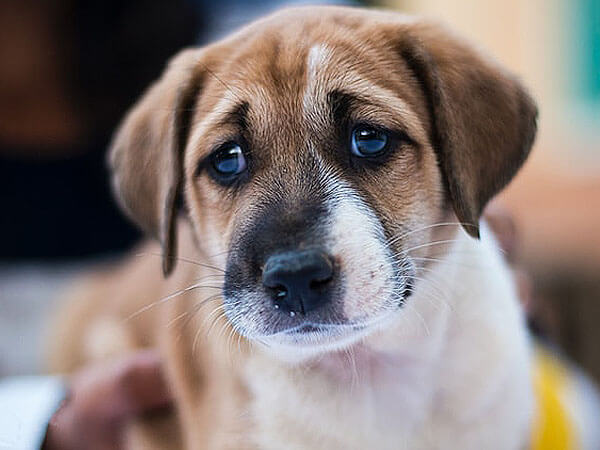
If you’ve been asking Can my puppy Get Parvo again, the answer is yes. However, the good news is such reinfections are rare. To ensure your pup doesn’t have to face reinfection, keep it isolated for up to two weeks after recovery.
Maintaining hygiene, keeping the food and water bowls clean, and washing and disinfecting the bedding to avoid contact with pathogens are equally vital.
What Causes Parvo In Puppies?
Parvovirus in puppies spreads through direct contact with an infected animal’s feces or vomit, contaminated surfaces, or through indirect contact with items like food and water bowls, leashes, and bedding. Puppies are especially vulnerable as their immune systems are not fully developed.
Can a puppy recover from Parvo?
Yes, puppies with early disease detections and adequate veterinary care can make a full recovery. However, the longer the disease is left untreated, the more difficult recovery can become.
Can my puppy Get Parvo from my backyard?
Parvo pathogens can survive on multiple surfaces. This includes grass, the ground, dirt, and pretty much anywhere else. That means your backyard can be a potential contamination source, especially if an infected dog has been nearby.
Can puppies be born with Parvo?
It’s possible for pups to be born with Parvo if their mother is infected with the disease and is unvaccinated.
How long is a puppy contagious with Parvo?
Puppies are contagious with Parvo for ten days; however, vets recommend isolation for 14 days to avoid spreading the virus.
Can only puppies Get Parvo?
Pups are more susceptible to contracting Parvo because their immune systems are still developing. However, adult canines can also get Parvo if they come into contact with an infected animal or surface.
Can an adult dog get Parvo?
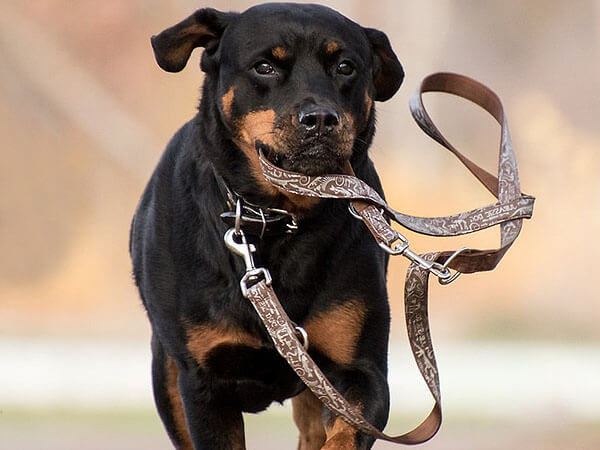
Adult dogs can get Parvo if they’re not vaccinated, have weak immune systems, or come into contact with Parvo pathogens via an infected animal or contaminated surfaces.
You may be interested in: My Dog Is Acting Drunk And Wobbly: Should I Be Concerned?
Can old Dogs Get Parvovirus?
Old dogs can get Parvo, especially if their immunity is affected due to an underlying health condition. They are also susceptible to contracting the virus if their vaccinations aren’t up-to-date.
Can older vaccinated Dogs Get Parvo?
Older vaccinated dogs can get Parvo if their immunity isn’t as strong as it should be. Senior canines often have underlying health conditions that can tax their immune systems, making them vulnerable to Parvo.
Can a Dog Get Parvo at any age?
Unfortunately, canines of all ages can contract Parvo. Even vaccinated dogs and pups can get infected; however, this isn’t very common.
Can a Parvo survivor have puppies?
A Parvo survivor can have puppies without problems, as long as the doggo doesn’t have long-term effects of the disease. Problems like malabsorption or chronic diarrhea can pose risks during pregnancy.
So, Can A Dog Get Parvo Twice?
While Parvo reinfections are rare, they can occur because the virus has several variants. Additionally, a doggo with a weak immune system is always at greater risk of contracting infections and viruses.
Nonetheless, if Parvo is detected early and adequately treated by a veterinarian, the chances of a canine fully recovering can increase significantly.
DISCLAIMER: THIS WEBSITE DOES NOT PROVIDE MEDICAL ADVICE
The information, including but not limited to, text, graphics, images and other material contained on this website are for informational purposes only. No material on this site is intended to be a substitute for professional veterinary advice, diagnosis, or treatment. Always seek the advice of your veterinarian or other qualified health care provider with any questions you may have regarding a medical condition.
Resources:
https://en.wikipedia.org/wiki/Canine_parvovirus
https://www.avma.org/resources-tools/pet-owners/petcare/canine-parvovirus

With over five years of specialized experience as an animal writer, my expertise lies in dog nutrition, health, behavior, grooming, and training. I am dedicated to delivering helpful and informative content that caters to the well-being of our furry friends. My primary goal is to empower pet owners with knowledge and ensure our canine companions thrive in health and happiness. In my free time, I love volunteering at local dog rescue centers.
